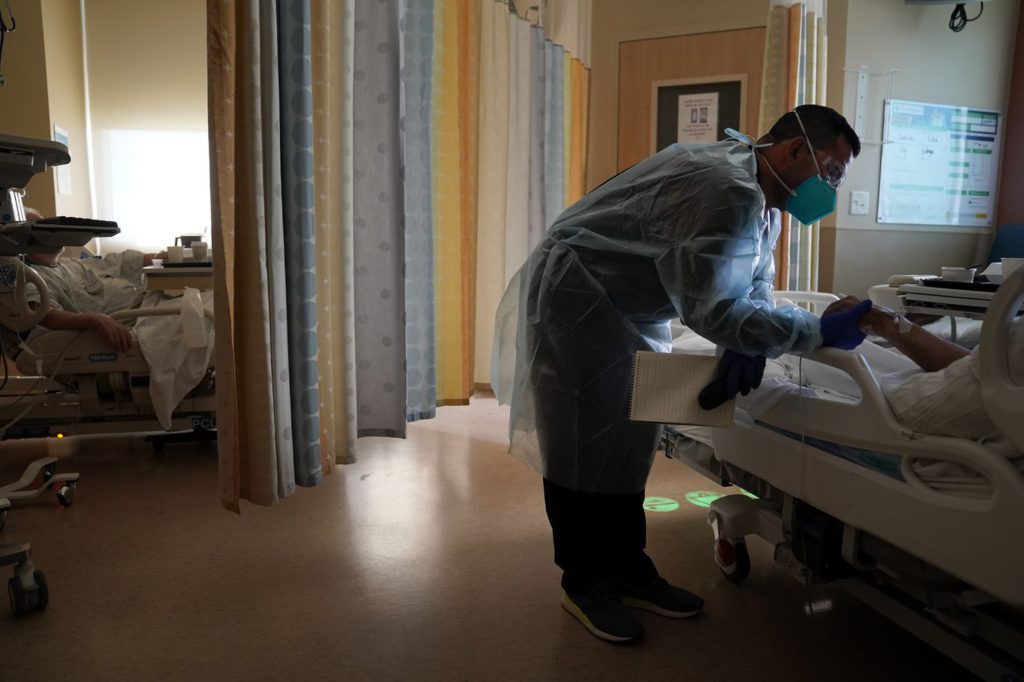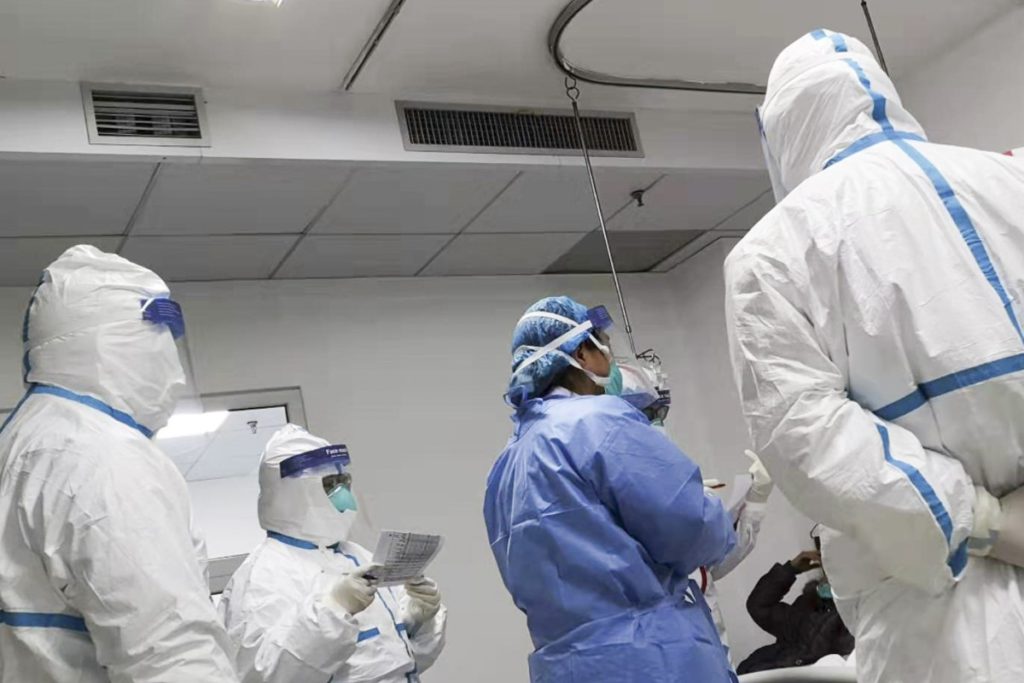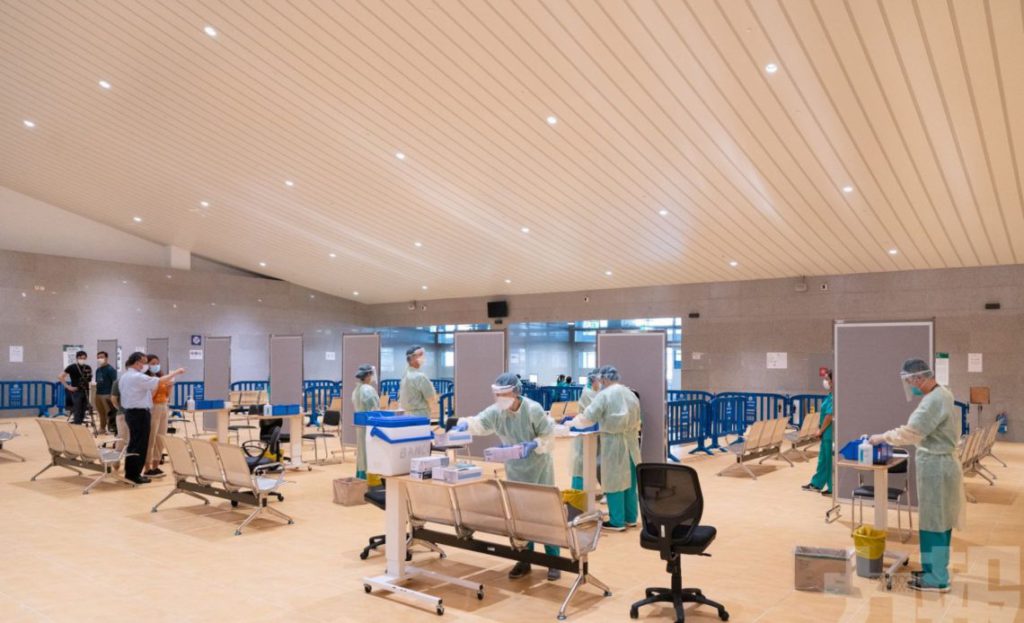Medical staff drops in half, while the number of patients quadruples. Staff at Conde São Januário’s Hospital and Macau’s residents show discontent with the way authorities are dealing with the situation. A virologist gives a solution to the disparity between confirmed cases and reality
Health authorities report that the peak of infections is still to come, leaving both health services and residents on alert. Last week they reported that 1/6 of Macau’s population (110,000) had already been infected with Covid-19 since the relaxation of pandemic prevention measures. However, the numbers may not match reality.
To PLATAFORMA, a local resident explains that a large number of people he knows have not posted the positive result on the digital health statement. “I simply stayed home. I was only having mild symptoms and didn’t feel it was necessary to declare my result.

A large portion of the people I know did the same,” he says. According to what the newspaper has found out, several hotels have also stopped accepting reservations until January 10, given the lack of human resources. “We don’t have the capacity to serve customers now that more than half the employees are on sick leave due to Covid-19. In my department I am the only one who has reported to work this week,” reveals a worker attached to one of the dealerships.
Read more about it: “The entire hospital environment in Macau is full of virus”
At Conde São Januário Hospital Center, a nurse wrote an anonymous letter last Friday saying as much: “Already more than half of the emergency room staff has caught Covid-19.”
HEALTH NEEDS THE REAL NUMBERS
A virologist contacted by PLATFORM warns of the danger that comes from the lack of reliable statistics.
“It is very important for health services to know the real number of infections, so that they can prepare medical resources,” begins Jacky Cheong. In his opinion, even if the population does not disclose on the digital platform that they are infected with the virus, through the sampling process the Government can establish a proportion.
“The Government can test the civil servants to determine the proportion of those infected. Hong Kong has a more advanced process, as they test the water in the buildings and if they find viral traces they do a mandatory inspection. The more data you can collect, the more accurate the estimate will be. In this process it is important to determine the effectiveness of the model itself,” he explains.

Reports from staff and local residents paint a bleak scenario in the emergency room of São Januário, the only public hospital in Macau. The numbers advanced by TDM on Monday (26) also portray this reality: about 1,200 people have been resorting daily to the hospital’s emergency room, quadrupling the number of patients in recent days. For this very reason, retired nurses and medical interns have begun to be integrated to meet the needs of the population.
Also read: Covid-19: vaccines for children aged 6 months to 4 years to arrive this month in Macau
Officials advanced on December 23 that 25 percent of St. Januario’s medical staff was with Covid-19. But a letter sent Friday by a nurse to the press and a Legislative Assembly deputy refutes that reality, claiming that more than half of the workers in the hospital’s emergency room could not report for duty due to Covid-19 infection.
LETTER FROM A NURSE
“Please help us,” it begins like this, warning of the danger of the mortality rate continuing to rise if certain flaws in the processes implemented by the authorities are ignored. “We don’t mind working like dogs, but to witness the death of patients is very sad. We are heartbroken,” it reads.
“I hope you can publicize this letter, otherwise I fear the death rate will continue to rise.” Starting with community clinics, it points out the gaps: “If people have no trouble breathing, they are asked to go home, but patients only want medicine for fever and cough. With no other options, they end up congesting the emergency rooms (…) like it has never been seen before.”

A local resident complained about this same treatment to Radio Macau.
Also read: Covid-19: Macau relaxes requirements for those flying abroad
Choi tried to make an appointment at a community clinic through the online system, but when he couldn’t, he decided to go directly. With her, she brought her son, who was coughing up blood, with her, but upon arrival, a staff member refused to attend to her, saying that “we only attend to those who are in very bad condition and have to be carried by someone else.”
“The situation is quite different from the one portrayed by the Chief Executive. Even without patients [the community clinics] do not help us,” Choi lamented.
In the letter, the nurse also writes that there is no separation between patients diagnosed with Covid-19 and those who arrive with other diseases. On the other hand, she reveals that the hospital does not have enough resources to deal with the spread of the virus. “Already more than half of the emergency room staff has caught Covid-19 (…). And that’s not even the biggest problem. The equipment and resources at our disposal simply can’t handle it. Even the most basic things are not available, like beds, oxygen, food, and diapers.”
To Radio Macau, Tang, a resident, even describes the emergency room environment at São Januário as “hell,” saying that the elderly are simply “waiting for death” in this hospital wing.
Also read: Rush to pharmacies leads to medication rationing in Macau
Tang took his father to the emergency room and returned home to care for the rest of his family with Covid-19. The next day, upon his return, the smell was unbearable as the diapers were not being changed.

Her father was bleeding after removing his own butterfly and was not receiving any medical attention. “I wanted to cry,” he reveals, adding that he never thought “the situation at the hospital could be this bad.”
NEW HEALTH MEASURES
Meanwhile, non-urgent or non-essential medical services have been suspended at the public hospital so that medical resources can be allocated to treating severe cases of Covid-19.
About 80 medical specialists from the different services were transferred to the hospital’s isolation wards, and another 60 resident doctors and doctors from the city’s health centers were sent to the emergency room and Community Treatment Center of the Macau East Asian Games Sports Nave to participate in patient triage.
More isolation centers have been set up, increasing the number of available beds from 300 to 700.
Also read: Macau hotels suffer from rising Covid-19 cases
Vaccination at São Januário has been suspended and the 24-hour outpatient consultation area has been transformed into a transition zone for emergency patients, where 40 temporary beds are available.
Already at the private Kiang Wu hospital, 40 percent of the medical workers are infected. Kiang Wu is treating about 800 patients a day and has suspended all non-emergency services in order to focus human resources on Covid-19 patients, they revealed on Monday.
CHINESE NEW YEAR WILL INCREASE CONTAGION
And with the arrival of the Chinese New Year on January 22, there should be a considerable increase in cases, as on January 8 the country will abolish the mandatory quarantine for those arriving from abroad. Jacky warns that the holiday season will certainly spread the virus to the country’s rural areas, bringing new challenges.

“It will cause further spread because the virus will follow people and will spread in the means of transport. We anticipate that with the relaxation of measures it will reach the rural areas of the country, some of which lack the resources to deal with the virus, bringing new challenges.”
Also read: Macau tourism agency tries to attract more mainland visitors
On whether this tourist influx and relaxation of preventive measures could give rise to new variants of the virus, he says it is not possible to establish a relationship.
“It is difficult to make a timeline for the mutation of the virus, but we know that it is six times slower than the common flu. The flu mutates from year to year, while the new coronavirus has mutated several times in three years. It is hard to predict whether it will mutate again with the arrival of the Chinese New Year, but so far there is no scientific evidence that there is a relationship between the two.”



